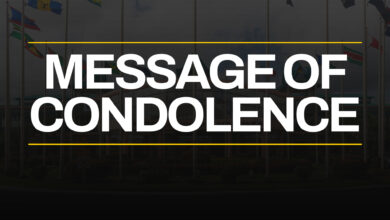PORT OF SPAIN, Trinidad – That there was violence and protest in the four years between Mr Mandela’s release and the general elections in 1994 is a matter of record, but measured against the tensions between the polarised races, it’s clear that Mr Mandela’s calming influence was a significant factor in the successful transition from apartheid to true democracy. Yesterday, Nelson Mandela—Madiba to much of the world, Tata (“Father”) to the free South Africans who have come of age in the last 20 years—turned 95. It was also Mandela Day, a global acknowledgement of the remarkable work, history and career of the South African activist, politician and inspirational leader that seeks to enshrine his example. Any recounting of the astonishing journey of Nelson Mandela would far exceed the limits of this space. As a young man, Mr Mandela, who had trained as a lawyer, became a founding member of the youth arm of the anti-colonialist African National Congress (ANC).
News Letter
Subscribe to our mailing list to get the new updates!
Check Also
Close
-
CARICOM Energy Month 2025 Webinar Series Kicks Off!
November 5, 2025





